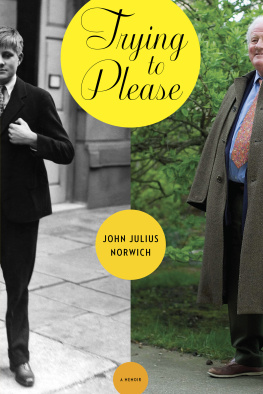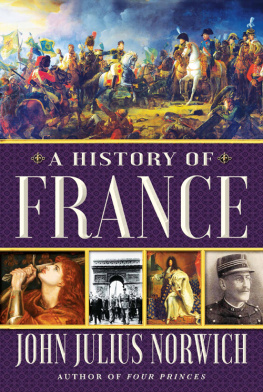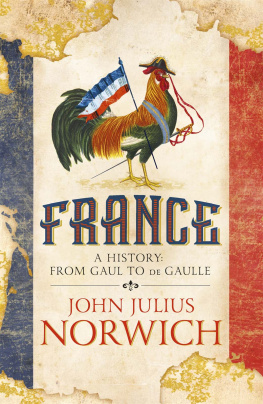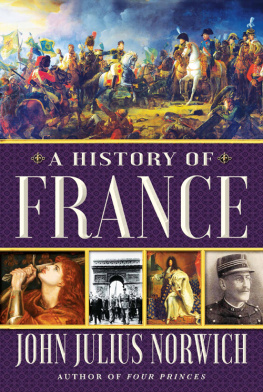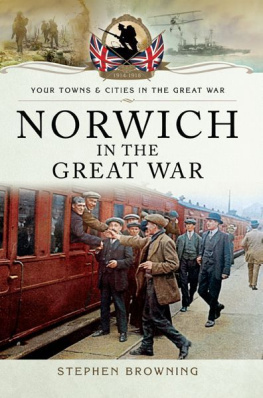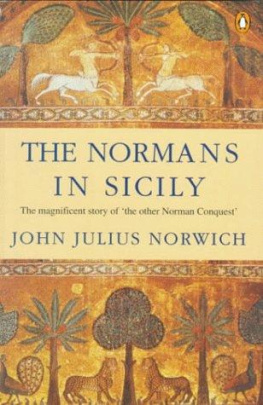Axios Press
PO Box 457
Edinburg, VA 22824
888.542.9467
Trying to Please: A Memoir 2010 by John Julius Norwich. All rights reserved. Printed in the United States of America. No part of this book may be used or reproduced in any manner whatsoever without written permission except in the case of brief quotations used in critical articles and reviews.
Ebook ISBN: 978-1-60419-038-0
That same dressing room was the setting for another story that my motherwhen in suitable companyloved to tell. It concerned the Great Russian bass Feodor Chaliapin, whose appetitesall of themwere commensurate with his enormous frame. He developed a passion for her (as so many people did) and one afternoon went to a matinee of The Miracle . As soon as the curtain had fallen, he came bursting into my mothers dressing room to find her cleaning the makeup off her face with cold cream. He was clearly in a state of considerable excitement, to demonstrate the degree of which he seized her hand and clamped it firmly to his crotch. Feodor, please! she protested, snatching it away, What will my dresser think? Besides, half a dozen other people will be round at any moment. You must behave yourself. Scarcely was she back at the makeup table when the other friends appeared, and as she introduced them she saw to her horror, like the hand of Fatima over some Islamic doorway, the snow-white imprint of her hand in cold cream on the great mans trousers.
Fortunately for me, Chaliapin had conceived the notionmistakenly, as it turned outthat the way to my mothers heart might be through her son. He accordingly showered me with presents, including several of his records for me to play on my wind-up gramophonefrom the age of five, The Death of Boris and The Song of the Volga Boatmen were as familiar to me as Three Blind Mice and an enormous woolly dog on wheels, always known gratefully as Theodore. But my clearest recollection of him dates from when I was about six. I had gone to bed, vaguely aware that my parents were giving a dinner party downstairs, and was already asleep when my mother shook me awake. Put on your dressing gown, she said, and come downstairs. Chaliapin is going to sing in the garden. It was, she explained to me later, all quite unexpected. She had invited him to the party as an ordinary guest; then suddenly, at the end of dinner, he had said Now I shall sing. He telephoned a friend, who came round at once with his balalaika. It was a warm summer evening; we all trooped into our tiny garden and the music began. Gradually heads began to appear at neighboring windowsnot, as one might have expected, to protest that some people wanted to get some sleep but obviously with the realization that this tremendous voice was something very special indeed; the applause, at the end of each song, seemed to come from everywhere.
I n those days we lived at 90 Gower Street, Bloomsburyan address to which my grandmotheralways known to me as Noonawho believed that human life was possible only in Mayfair or Belgravia, was never entirely reconciled. Violet, Duchess of Rutland, was the only one of my grandparents who was still alive by the time I was born. My mother, being a love child, was her favorite of her four surviving children; and I, being my mothers sole offspring, was I believe similarly preferred among her numerous grandchildren. Born in 1856, she was already well into her eighties when I remember her. (If only I had been old enough to pump her about her past; in her youth she must have known old men who had fought at Waterloo.) She was a superb portraitist in pencil and in those days spent much of her life drawing admirableif occasionally over-flatteringportraits of all her friends; although I occasionally stayed with her for weeks at a time I hardly ever saw herin an armchair, in bed, even on the trainwithout an orange-colored HB pencil in her hand, a drawing pad on her knee and, somewhere nearby, a crust of stale bread, which she always preferred to any other kind of eraser. She made literally hundreds of drawings of me, which I didnt mind a bit; all I hated was her determination to teach me to draw too. To this day, any attempt I make looks like the work of a retarded child of six; even then I knew that my grandmothers efforts to improve me would always be in vain, and felt bitterly the humiliation of lying beside her in bed in the mornings, forever trying to copy the noses, eyes, and mouths with which she effortlessly covered the paper.
My other memory of hermore distasteful stillis being taken by her on afternoon drives. Like so many children, I was a martyr to carsickness; and, as any fellow-sufferer will confirm, one longs at such moments for two things only: to have all the windows wide openpreferably sticking ones head out of the nearestand to reach ones destination as quickly as possible. On my uttering the usual warning, my grandmothers instant reaction was to shut any window that might have been fractionally open and to order the chauffeur to reduce speedwhich seldom, in any case, rose to more than thirty miles an hour. The consequences would be almost instantaneous, but she never learned. I adored her none the less, and was I think consciously grateful for all the time she gave mehowever misspentand for her endless patience; and I was broken hearted when she died in 1937, three days before Christmas. There was, as usual, a huge family Christmas at Belvoir. I am sure all the grown-ups must have knownmy mother had stayed in London to be with herbut the news was kept from the children so as not to spoil the festivities.
The Belvoir Christmas was a fixture for the first ten years of my lifeuntil the war cameand to this day the Castle and the feast are indissolubly linked in my mind. My parents normally went up by carmy mother had a lifelong passion for drivingwhile Nanny and I, usually accompanied by my grandmother and her maid, would take the train (always third class) from Kings Cross. I, from the age of about four, would have my head buried in a book, from which I would look up from time to time to see my grandmother drawing yet another portrait of me, all oblivious of the jolting train. Night would have fallen by the time we pulled up at Grantham station, lit in those days by gas lamps; I can still see their mantles glowing a greenish yellow through the clouds of steam from the engine as we followed the porter, pushing a barrow-load of cabin trunks (for just a weeks stay) along the platform to the two Rolls-Royces waiting outside.
The next half hour was one of mounting excitement: driving through the darkened (and, in those days, quite often snow-covered) countrysidein itself a thrill for a five-year-old; watching the rabbits standing transfixed in the headlights before they scampered away; and thenmost magical moment of allcatching sight of the lighted castle high above us on its hill, like something out of a fairy tale. Arriving at the great Gothic porch, we would walk down a short passage to the main entrance hallalways known as the Gun Roomin which stood an enormous Christmas tree, cut on the estate and at least twenty feet high, surrounded by brilliantly colored parcels and set with hundreds of real candles, while a bevy of liveried footmen wandered round with sponges on long poles, making sure that there were no accidents. Then to Nannys and my roomalways the same onewith a fire blazing in the hearth; and finally to a quick supper in the nursery with half a dozen cousins and their nannies before being put reluctantly to bed. And even then the days excitement would not quite be over: presently, as I lay waiting for sleep, I would suddenly be conscious of a most wonderful sound, soft at first but increasing in a thrilling crescendo until it seemed to fill the whole castle. It was the First Gong, sounded by an aged servitor as he hobbled along the passages, warning the guests that it was time to dress for dinner. Three-quarters of an hour later there would be the Second Gong, for dinner itself.
Next page
